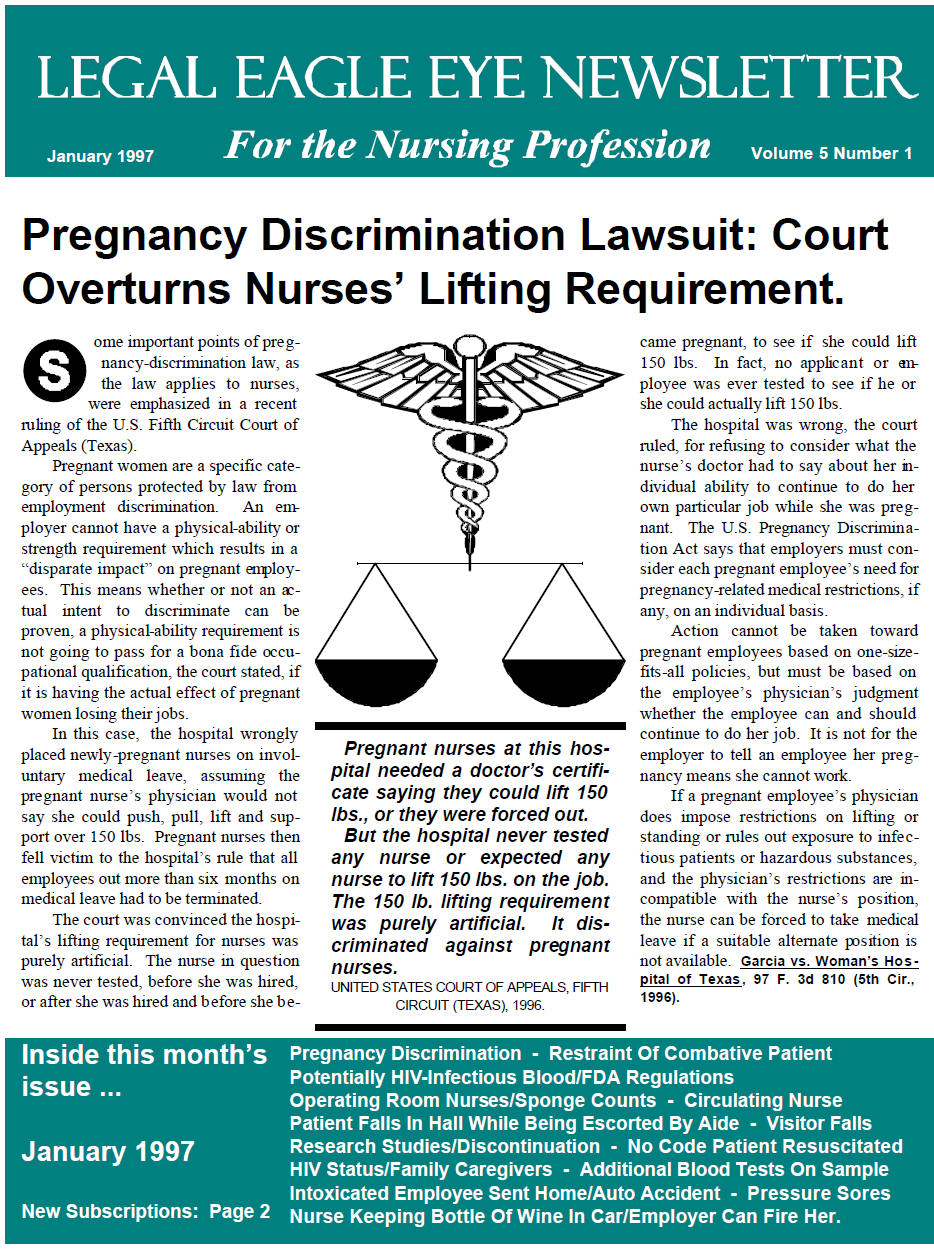
Legal Eagle Eye Newsletter for the Nursing Profession Home Page
New Subscriptions I About Our Newsletter I Sample Newsletter I FAQ I Contact Us

Pregnancy Discrimination: When Nurse Became Pregnant, Discipline Became Abrupt, Court Lets Nurse Sue
Quick Summary: Unlawful sex discrimination includes pregnancy, childbirth and other related medical conditions.
To prove any kind of discrimination case, the employee has to prove:
That the employee belongs to a protected class of persons, and
That the employee was qualified for the job in question, and
That despite being qualified the employee was treated adversely.
Once the employee proves these basic elements of a case of discrimination, the employer can argue there were legitimate disciplinary reasons behind the employer's actions.
The employee can still have the last word, if the employee can show the employer's disciplinary actions were just a pretext for unlawful discrimination.
This nurse was disciplined very differently after she became pregnant. She has a valid discrimination case.
SUPREME COURT OF RHODE ISLAND, 1998.Before she became pregnant, incidents of inappropriate conduct were addressed by way of oral warnings and meetings between the nurse and her supervisors to work out their differences. Her supervisors documented that they thought the nurse’s performance and overall attitude were improving.
After she told her supervisors she was pregnant, things changed, according to the Supreme Court of Rhode Island. When the nurse voiced her complaints about management to a patient, and failed to notify her immediate supervisor she would be absent, her supervisors did not follow established personnel policies regarding discipline and termination.
After she became pregnant and told her supervisors she was pregnant, the nurse did not receive notice of her employer’s intent to terminate her, for infractions which had previously only resulted in warnings and counseling. Nor was the nurse informed of her right to internal appeal processes, even though her appeal rights and her right to be informed of her appeal rights were spelled out explicitly in the employer’s employment policy manual.
The progressive disciplinary policies that were being followed before the nurse became pregnant were discarded in favor of abrupt termination. Even if the incidents were serious infractions against the employer’s legitimate interests and the nurse was guilty of the infractions, the court found it hard to believe the infractions would suddenly become grounds for dismissal, unless the employer had an ulterior motive.
The court decided that there were significant disciplinary problems with this nurse. However, the abrupt change in how these matters were handled after she became pregnant supported only one conclusion, that she was a victim of discrimination.
Center v. Barros, 710 A. 2d 680 (R.I., 1998).More references from nursinglaw.com
http://www.nursinglaw.com/pregdiscrim4.htm
http://www.nursinglaw.com/pregnancy-discrimination-medical-restrictions.htm
http://www.nursinglaw.com/pregnancy-discrimination-nursing-home.htm
http://www.nursinglaw.com/pregwork.htm